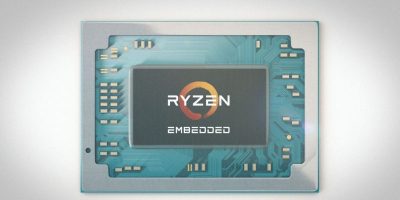Two processors from AMD boost graphics performance for edge computing
Two processors, the EPYC Embedded and Ryzen Embedded processors have been launched by AMD. The AMD EPYC Embedded 3000 processor brings the power of “Zen” to new markets including networking, storage and edge computing devices, says the company. The AMD Ryzen Embedded V1000 targets medical imaging, industrial systems, digital gaming and thin clients
Scott Scott Aylor, corporate vice president and general manager, Datacenter and Embedded Solutions Business Group, AMD, said the processors extend the x86 ‘Zen’ architecture from PCs, laptops and the datacentre to networking, storage and industrial solutions, . . . delivering transformative performance from the core to the edge”. He continued: “AMD EPYC Embedded 3000 raises the bar in performance for next-generation network functions virtualisation, software-defined networking and networked storage applications. AMD Ryzen Embedded V1000 brings together the ‘Zen’ core architecture and ‘Vega’ graphics architecture to deliver brilliant graphics in a single chip that provides space and power savings for medical imaging, gaming and industrial systems”.
Customers have already announced products using the processors. The Quixant QX-704K Ultra HD casino gaming platform is based on the Ryzen Embedded V1000 and is available now. The Esaote MyLab 9 eXP ultrasound system, for general medical imaging, women’s healthcare and cardiovascular diagnostics, is based on the Ryzen Embedded V1000. This is scheduled for release in Q3. Advantech has also announced four boards based on the Ryzen Embedded V1000. They are an integrated casino gaming platform and multimedia gaming engine, a Com-E module for medical, automation and gaming applications and a mini-ITX embedded motherboard.
There is an ecosystem of more than 16 partners offering boards and software for both processors.
The AMD EPYC Embedded and AMD Ryzen Embedded processors help protect data at the hardware level with an on-chip secure processor, complemented by hardware validated boot capabilities to help ensure systems are booted up from trusted software. Secure memory encryption (SME) deters unauthorised physical memory access while secure encrypted virtualisation (SEV) encrypts virtual machine (VM) memory without the need to make changes at the application level.
Visit AMD at Embedded World: Hall 1 – Stand 360




